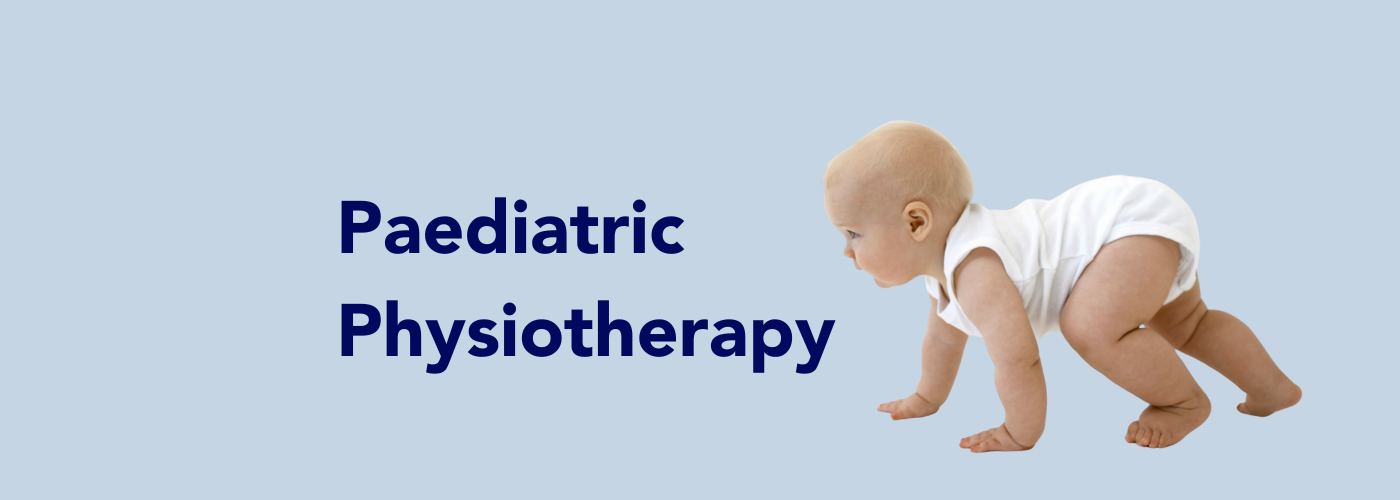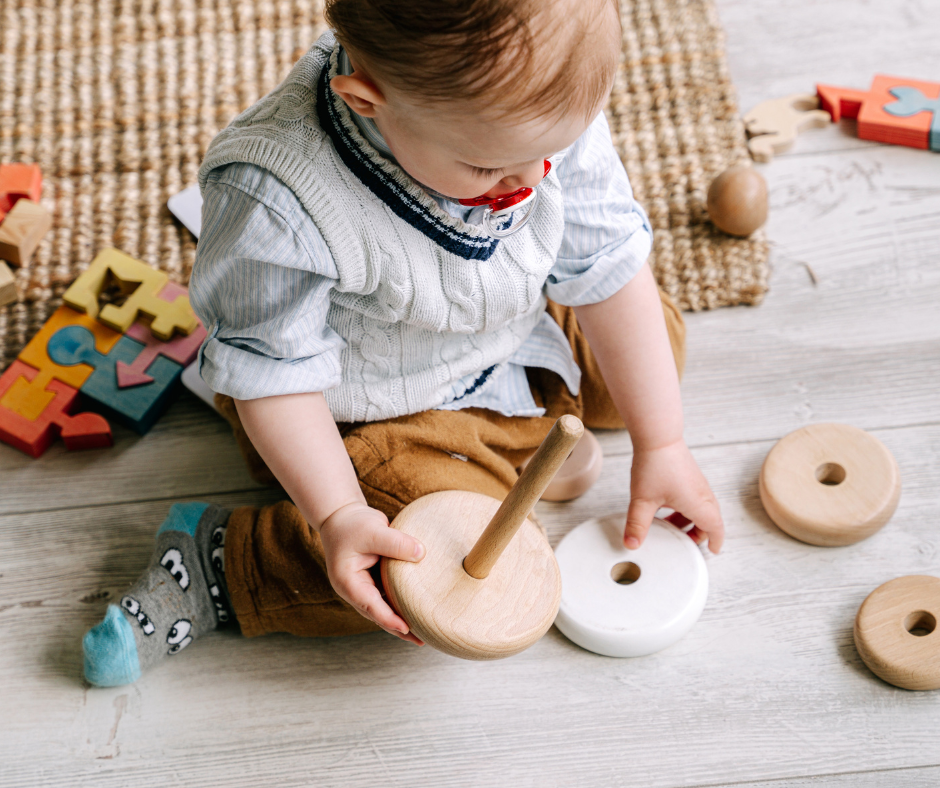

What does a Paediatric Physiotherapist do?
Our Paediatric Physiotherapists work with babies, children and teenagers (age 0-18 years) who may have musculoskeletal or neurological conditions or injuries. We can assess and treat difficulties with movement, pain, disability or developmental delay. We listen to your concerns and assess your child using standardised testing. We provide education and advice based on our findings, then prescribe personal exercise programmes or hands-on therapy to help your child. We come up with a treatment programme and shared goals for therapy.
Gross Motor Development and Coordination
Our Paediatric Physiotherapists are experts in the diagnosis and treatment of gross motor delays and clumsy kids. We help babies and toddlers that are not yet crawling or walking. We help children that are having trouble running or jumping. We help with balance and coordination problems. We help children with ASD, ADHD, DCD, hypotonia and hypermobility that can cause gross motor and balance issues.
Muscoskeletal Issues in Children
Children’s injuries and issues are different to adults. They can be with congential issues such as talipes, torticollis, development hip dysplasia and plagiocephaly. Babies have soft heads and can have a flat spot (or plagiocephaly) from sleeping on one side. Leg shapes that are normal in toddlers like knock-knees, pigeon-toes, flat feet and bow-legs, are not normal in order children and need help.
Children have boney growth plates that can be overlooked by sports causing Sever’s Disease or Osgood Schlatter Disease. Children can also have different joint conditions to adults causing pain that we need to check for.
Common Conditions
Infants with flat head or neck turning preference
Torticollis (head tilt or uneven turning) and plagiocephaly (flat head) are treatable by a paediatric physiotherapist. Early treatment before 4 months gives the best results.
Read more
Delayed rolling, crawling or walking
If your baby is not rolling by 6 months, sitting by 7 months, crawling by 12 months, or walking by 18 months, a paediatric physiotherapy assessment is recommended. Paediatric physiotherapy can help with delayed motor milestones in babies.
Read more
Clicky hips
If you have noticed an uneven thigh or buttocks crease, if one leg looks shorter or feels stiffer or hips clunks when they are picked up, then they need a check for Developmental Dysplasia of the Hip (DDH), commonly know as ‘click hips’. An assessment with a paediatric physiotherapist can help assess, diagnose and manage this condition.
Read more
Funny crawling
If your baby is not crawling by 12 months, or is crawling asymmetrically or a bit funny, a paediatric physiotherapy assessment is recommended. Types of funny crawls include bottom scooting, tripod crawl, dragging one leg, belly crawl, rolling across the room.
Read more
Happy sitters
If your baby stuck in sitting and struggles to move out of that position—such as rolling, crawling or getting onto their tummy—it may be a sign they need support with motor development. Difficulty transitioning out of sitting can affect how babies explore their environment and learn new skills like crawling or standing.
This may be due to muscle weakness, coordination challenges or delays in motor planning. Our physiotherapists gently guide your baby through play-based exercises that encourage movement, strength, and confidence, helping them reach important developmental milestones at their own pace.
Delayed movement milestones (jumping, running and hopping)
As your child grows, it is important to monitor their development and ensure that they are meeting their milestones. If your child had difficulty jumping, hopping, running or balancing on one leg compared to their friends, paediatric physiotherapy can help.
Read more
Toe walking toddler
Toe walking is where children walk on the balls of their feet, without placing their heels on the ground. Toe walking can be quite common when children are learning to walk, however, after the age of two, most children should develop a heel-to-toe pattern of walking. If your child is toe walking most of the time after age 2, check in with our paediatric physiotherapy team.
Read more
Falling over excessively, tripping, clumsy
Frequent falling, tripping, or clumsiness in primary school children can be signs of delayed motor development, poor coordination, or underlying strength and balance issues. These challenges may affect their confidence, participation in play, and overall physical development. Physiotherapy provides targeted exercises and strategies to improve coordination, build core strength, and support more confident, controlled movement in everyday activities.
Pigeon-toed walking
In-toeing is when a child walks with their feet turn inward instead of straight. It is a common condition in children and usually can be outgrown. Typically, this usually does not cause any pain however might make children prone to tripping or present with an awkward walk or run.
Read more
Flat feet, talipes or metatarsus adductus
Metatarsus Adductus is a common condition in babies and young children. The outside border of the foot is curved, and the foot is a bean-shape. Most cases are mild and will improve with some stretching exercises and as the child starts to stand. It is important to check if the foot is flexible or stiff. A flexible metatarsus adductus can be stretched straight.
Read more
Running awkwardly
An awkward running style in children may signal issues with coordination, muscle weakness, or motor development. Physiotherapy can help identify the cause and improve running technique, strength, and overall movement efficiency.
Difficulty with hopping, skipping, swimming, running or riding a bike
If your child has difficulty with activities like hopping, skipping, swimming, running, or riding a bike, it may be a sign of delayed motor development, poor coordination, low muscle tone, or balance challenges. These skills are important for social play, physical confidence, and participation in school or sports.
Physiotherapy helps by assessing their movement patterns and providing engaging, tailored exercises to build strength, coordination, and confidence in their abilities.
Foot, leg, back or tummy pain that is worse with activity
If your child is experiencing pain in their feet, legs, back, or tummy that gets worse with walking, running, or playing, it may be more than just growing pains. Activity-related pain in children can be caused by a range of treatable issues, including muscle imbalances, poor posture, joint hypermobility, or biomechanical problems like flat feet. This discomfort can affect their ability to join in at school, sports, or play, and may lead to avoidance of physical activity.
Our physiotherapists work to identify the underlying cause and provide targeted treatment to relieve pain, improve movement patterns, and help your child return to pain-free activity with confidence.
Poor ball skills, poor hand-eye coordination
If your child has poor ball skills or struggles with hand-eye coordination, it may indicate challenges with motor planning, timing, or visual tracking. These difficulties can impact their ability to catch, throw, or kick a ball, often leading to frustration or avoiding group play and sports.
Physiotherapy can help by identifying the underlying issues and using fun, targeted activities to improve coordination, reaction time, and confidence in physical tasks.
Motor learning difficulties
Gross Motor Skills are physical skills that require whole body movement and involve the large muscles in the arms, legs and torso. These skills are important in order to perform everyday activities like walking, running, jumping, throwing catching and kicking a ball.
Children develop gross motor skills at different rates, however if they have trouble with performing these skills and need some extra help, physiotherapy can assist in improving body awareness, strength, balance and reaction speed.
Read more
Musculoskeletal problems such as knee pain
Knee pain in children is often caused by growing, muscle imbalances, or doing too much sport without enough rest or support.
Physiotherapy can help find the cause of the pain and provide simple, effective treatment to reduce discomfort, improve movement, and help your child stay active and pain-free.
Development Co-ordination Disorder
Developmental Coordination Disorder (DCD), or Dyspraxia, is a condition that affects a child’s ability to plan and carry out coordinated movements. In school-aged children, this can show up as difficulty with handwriting, using scissors, getting dressed, or keeping up in sports and playground games. These challenges often affect their confidence, social participation, and academic performance. DCD is not linked to a lack of effort or intelligence—it’s a neurological condition that makes learning new motor skills more difficult.
Our physiotherapy sessions are designed to support your child through fun, structured activities that improve balance, coordination, strength, and motor planning. With the right support, children with DCD can build skills, independence, and confidence at home and at school.
Juvenile Arthritis
Juvenile Idiopathic Arthritis (JIA) is an autoimmune condition in children causing joint pain, with unknown cause. It affects one child in 1,000 in Australia. They may have only one or a number joints affected. The most common joints are knees, hands, feet and hips. The level of joint pain can vary day to day or week to week, with flare-ups and remissions. Paediatric physiotherapy can assist in the management of JIA.
Hypermobility (double-jointed)
Hypermobility, often called being “double-jointed,” refers to joints that move beyond the normal range and can be common in children and teenagers. While often harmless, it can sometimes lead to joint pain, instability, or injury during sports and daily activities.
Postural issues (sway back, protruding tummy, winging shoulder blades)
Postural issues like sway back, protruding tummy, or winging shoulder blades can occur in teenagers and can lead to muscle imbalances, discomfort, or long-term strain. Physiotherapy helps correct their posture and builds strength for better alignment and confidence.
Scoliosis
Have you noticed that your child has one shoulder higher than the other? Do their clothes not sit right on their shoulders? If you answered yes, then we recommend a paediatric physiotherapy assessment for scoliosis.
Read more
Fiona Elliott
B.App.Sc. (Physiotherapy)
M. Advanced Paediatric Physio Practice
APA Titled Paediatric Physiotherapist
Sally Handcock
Masters of Physiotherapy
Physiotherapist
Our Paediatric Physiotherapy Team
We have a team of experienced and qualified physiotherapists who are skilled in treating a wide range of conditions and have studied Paediatric Physiotherapy at a postgraduate level. Our Senior Paediatric Therapist Fiona Elliott is Master’s qualified and APA Titled.
Speak to the team At Total Physio Today
let's get your child back on track




